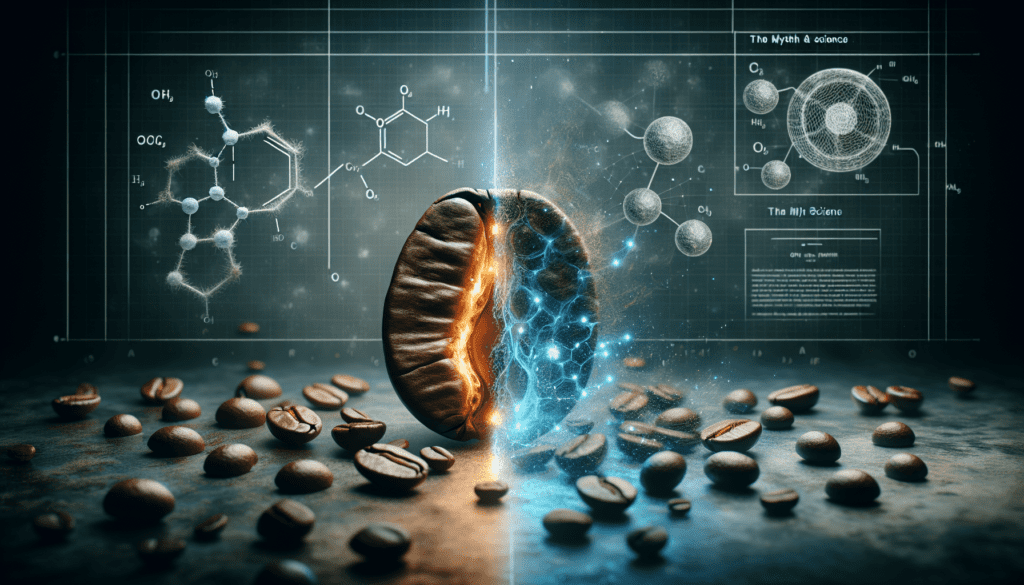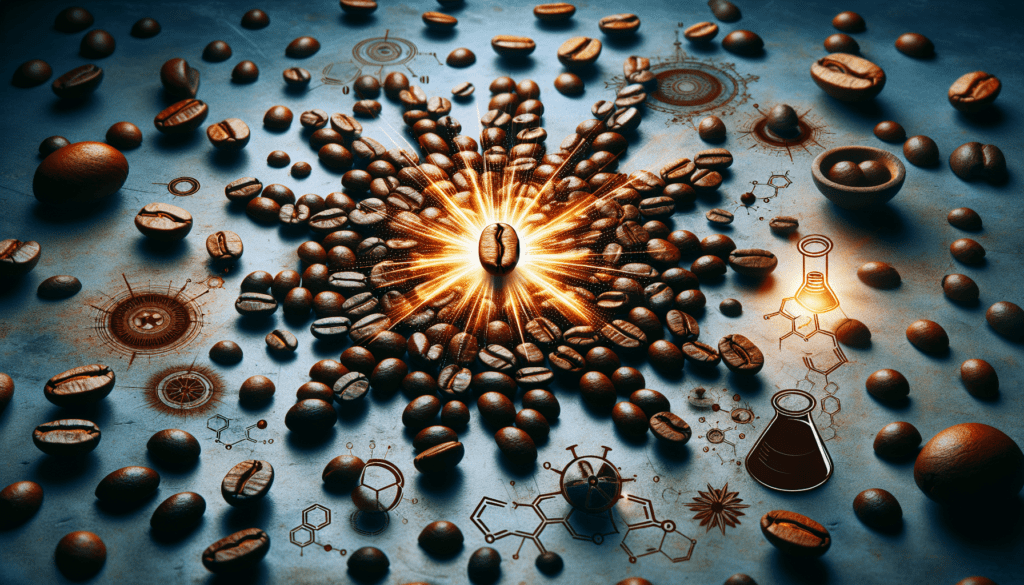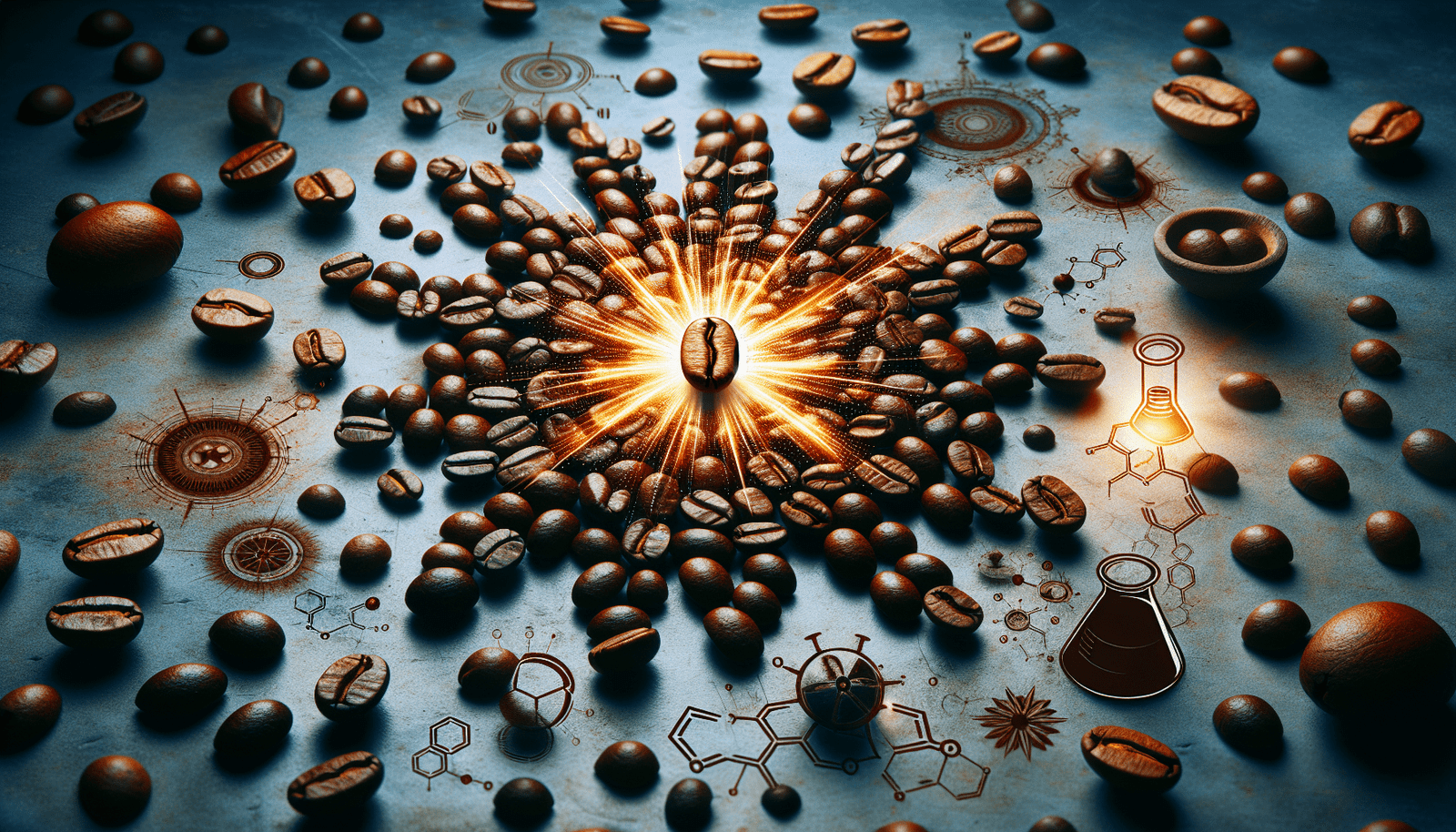Coffee beans are the heart and soul of the caffeinated world, with their various forms and flavors capturing the attention of coffee enthusiasts everywhere. From exploring the best coffee beans for espresso to the fascinating concept of chocolate-covered coffee beans, the coffee journey is truly a delightful one. However, amidst all the discussions and debates, one question often arises: does Eating Coffee Beans give you caffeine? In this article, we will uncover the answer to this intriguing query and provide you with a deeper understanding of the world of coffee beans and their caffeine content. So grab your favorite brew, sit back, and let’s unravel the mysteries of this beloved bean.
What are Coffee Beans?
Definition of Coffee Beans
Coffee beans are the seeds of the Coffea plant, which are harvested and processed to make the beloved beverage that we know as coffee. These seeds are found inside the fruit of the Coffea plant, known as coffee cherries. After harvesting, the coffee cherries are processed to remove the outer layers and reveal the beans within.
Varieties of Coffee Beans
There are several varieties of coffee beans that are cultivated around the world, each offering unique flavors and characteristics. Some of the most popular varieties include:
-
Arabica Coffee Beans: Arabica beans are considered to be superior in quality, known for their nuanced flavors, and are often associated with higher-end specialty coffees.
-
Robusta Coffee Beans: Robusta beans are known for their higher caffeine content and stronger, more bitter taste. They are often used in blends and instant coffees.
-
Excelsa Coffee Beans: Excelsa beans are less common and have a unique flavor profile that combines fruity and dark roasty notes.
-
Liberica Coffee Beans: Liberica beans are known for their distinct smoky and woody flavors. They are grown in smaller quantities compared to Arabica and Robusta.
Each variety of coffee bean has its own distinct characteristics, making the world of coffee a diverse and exciting one to explore.
The Caffeine Content in Coffee Beans
How Caffeine is Formed in Coffee Beans
Caffeine is a naturally occurring compound that is found in coffee beans. It acts as a natural pesticide, protecting the plants from insects. During the growth process, the caffeine content increases as the beans ripen and develop. The caffeine is stored in the coffee beans’ seeds, which are then harvested and processed for consumption.
Factors Affecting Caffeine Content
Several factors can influence the caffeine content in coffee beans. These include:
-
Variety of Coffee: Different coffee varieties have varying caffeine content. Robusta beans, for example, contain roughly twice the amount of caffeine as Arabica beans.
-
Roasting Process: The amount of caffeine in coffee beans can be affected by the roasting process. Contrary to popular belief, lighter roasts actually contain slightly more caffeine than darker roasts. This is because the longer roasting time breaks down some of the caffeine molecules.
-
Brewing Method: The brewing method used can also impact the amount of caffeine in your cup of coffee. For example, espresso typically contains less caffeine per serving than drip coffee, even though espresso beans usually have a higher caffeine concentration.
Comparing Caffeine Content in Different Coffee Beans
When comparing the caffeine content in different coffee beans, it’s important to consider both the variety of the beans and the brewing method used. Generally, Robusta coffee beans have the highest caffeine content, followed by Arabica, Excelsa, and Liberica. However, the final caffeine content in your cup of coffee will also depend on factors such as the roast level and brewing technique.

Does Eating Coffee Beans Give You Caffeine?
Absorption of Caffeine through Digestion
Yes, eating coffee beans does provide you with caffeine. When coffee beans are consumed in their whole form, the caffeine they contain is absorbed into the body through the digestive system. The caffeine is then metabolized and enters the bloodstream, resulting in its stimulating effects.
Amount of Caffeine Consumed by Eating Coffee Beans
The amount of caffeine consumed by eating coffee beans will depend on several factors, including the quantity of beans consumed and the specific coffee bean variety. On average, a single coffee bean contains about 6 milligrams of caffeine. Therefore, consuming a handful of coffee beans could provide a significant amount of caffeine.
Effects of Consuming Caffeine from Coffee Beans
Consuming caffeine from coffee beans can have various effects on the body. Some of the common effects include increased alertness, improved concentration, and a temporary boost in energy levels. However, it’s important to note that individual reactions to caffeine can vary, and excessive consumption may lead to adverse effects such as restlessness, increased heart rate, and difficulty sleeping.
Health Effects and Risks of Eating Coffee Beans
Positive Health Effects
Moderate consumption of caffeine from coffee beans can have several potential health benefits. Some of these include:
-
Improved Cognitive Function: Caffeine has been shown to enhance cognitive performance, including increased focus, attention, and mental alertness.
-
Boost in Physical Performance: Caffeine can improve endurance and reduce feelings of fatigue during physical activities.
-
Reduced Risk of Certain Diseases: Some studies suggest that moderate consumption of coffee, which includes caffeine from coffee beans, may help reduce the risk of certain diseases such as Parkinson’s disease, type 2 diabetes, and liver diseases.
Negative Health Effects
While moderate consumption of caffeine is generally considered safe for most individuals, excessive intake or sensitivity to caffeine can lead to negative health effects. These may include:
-
Sleep Disturbances: Consuming caffeine too close to bedtime can disrupt sleep patterns and lead to difficulty falling asleep or staying asleep.
-
Increased Heart Rate and Blood Pressure: Caffeine can temporarily raise heart rate and blood pressure, which may be a concern for individuals with underlying heart conditions.
-
Digestive Issues: Some individuals may experience digestive issues, such as acid reflux or stomach irritation, from consuming caffeine.
Risks and Considerations
It’s important to take into account individual sensitivities and health conditions when consuming caffeine from coffee beans. Pregnant women, individuals with heart conditions, and those with caffeine sensitivities should exercise caution and consult with their healthcare provider before consuming coffee beans or other caffeinated products. Additionally, consuming excessive amounts of caffeine from coffee beans may lead to dependency or tolerance.

Alternatives to Eating Coffee Beans for Caffeine
Other Sources of Caffeine
If you prefer to avoid eating coffee beans directly, there are plenty of other sources of caffeine available. Some common alternatives include:
-
Coffee: The most popular method of consuming caffeine is through brewed coffee. Choose your preferred brewing method and enjoy a cup of coffee to get your caffeine fix.
-
Tea: Tea, both black and green, contains caffeine and offers a flavorful alternative to coffee. Different teas have varying amounts of caffeine, so you can choose a tea that aligns with your desired level of stimulation.
-
Energy Drinks: Energy drinks are another option for those seeking a quick caffeine boost. However, it’s important to consume them in moderation, as they often contain high amounts of caffeine and other additives.
Brewing Methods and Caffeine Extraction
The caffeine content in your cup of coffee can vary depending on the brewing method used. Generally, brewing methods that involve longer contact time between water and coffee grounds, such as French press or cold brew, tend to extract more caffeine. On the other hand, brewing methods like espresso, which involve high-pressure extraction over a short period, result in a concentrated but relatively low caffeine content.
How to Enjoy Coffee Beans without Consuming Caffeine
Decaffeinated Coffee Beans
If you enjoy the taste and aroma of coffee beans but want to avoid the stimulating effects of caffeine, decaffeinated coffee beans are a great option. Decaffeination processes remove a significant portion of the caffeine while retaining the flavors and characteristics of the beans. You can find decaffeinated versions of various coffee bean varieties, allowing you to enjoy the coffee experience without the caffeine.
Coffee-Flavored Foods and Beverages
If you’re looking for alternative ways to enjoy the flavors of coffee without consuming caffeine, there is a wide range of coffee-flavored foods and beverages available. These include coffee-flavored ice cream, cakes, chocolates, and even coffee-flavored liqueurs. These options provide the taste and aroma of coffee without the caffeine content.
Tips for Proper Coffee Bean Consumption
Understanding Serving Size
When consuming coffee beans, it’s important to be mindful of the serving size. While a handful of coffee beans may provide a noticeable caffeine boost, excessive consumption can lead to unwanted side effects. It’s best to consume coffee beans in moderation and pay attention to your body’s reaction to caffeine.
Storing Coffee Beans Correctly
To maintain the quality and freshness of your coffee beans, proper storage is essential. Coffee beans should be stored in an airtight container in a cool, dry place away from direct sunlight and moisture. It’s also recommended to avoid storing them in the refrigerator or freezer, as this can introduce moisture and affect the flavor of the beans.
Grinding Coffee Beans for Maximum Flavor
For the best flavor and aroma, it’s recommended to grind coffee beans just before brewing. This helps preserve the volatile compounds responsible for the delicious flavors in coffee. Invest in a quality coffee grinder and experiment with different grind sizes to find the perfect balance for your preferred brewing method.
Common Myths and Misconceptions about Eating Coffee Beans and Caffeine
Myth: Coffee Beans Are More Potent Than Brewed Coffee
Contrary to popular belief, coffee beans are not more potent than brewed coffee in terms of caffeine content. The caffeine content in your cup of coffee is influenced by factors such as the variety of beans used, the brewing method, and the serving size. While coffee beans may provide a concentrated dose of caffeine when consumed directly, the overall caffeine content in a cup of brewed coffee is often higher.
Myth: Eating Coffee Beans Prevents Drowsiness
While caffeine can temporarily enhance alertness and reduce fatigue, eating coffee beans is not a foolproof method to prevent drowsiness. The effects of caffeine vary among individuals, and consuming excessive amounts can lead to crashes and disrupted sleep patterns. It’s important to maintain a healthy sleep routine and address drowsiness with proper rest rather than relying solely on caffeine.
Debunking Other Misconceptions
There are many other myths and misconceptions surrounding the consumption of coffee beans and caffeine. Some of these include claims about weight loss, reduced risk of certain diseases, and enhanced athletic performance. While caffeine may have some potential benefits, it’s important to approach these claims with skepticism and rely on scientific research and personal experiences.
Conclusion
In conclusion, eating coffee beans does provide you with caffeine, but it’s essential to understand the factors that affect the caffeine content and the potential health effects. Moderation is key, and it’s important to consider individual sensitivities and health conditions when consuming caffeine. If you prefer to avoid the stimulating effects of caffeine, there are alternatives available, such as decaffeinated coffee beans and coffee-flavored foods and beverages. Remember to store your coffee beans correctly, grind them fresh, and enjoy them responsibly to savor the wonderful flavors they have to offer.

